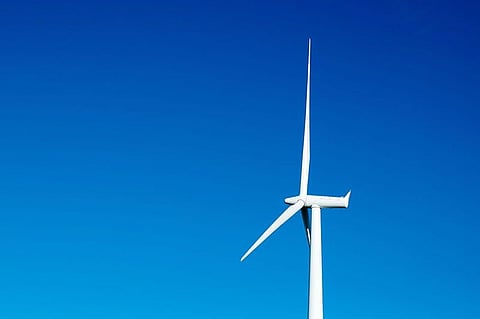
- NEWS
- the EDIT
- COMMENTARY
- BUSINESS
- LIFE
- SHOW
- ACTION
- GLOBAL GOALS
- SNAPS
- DYARYO TIRADA
- MORE

Various international and Philippine-based think tanks and civil society organizations are calling for a stronger collaboration across the renewable energy sector to ensure the transition towards RE will be ecologically and socially responsible.
These groups said that there are emerging impacts in the energy transition including displacement of indigenous communities, threats to biodiversity and environmental pollution from end-of-life disposal, and could impede the country’s energy transition.
On Friday, close to 100 representatives from industry, finance, civil society and policymakers gathered for the launching of Responsible Energy Initiative Philippines (REI Philippines) at the Astoria Plaza Hotel in Pasig City.
The new formation called for stronger collaboration to integrate policies, practices, norms and behaviors of the sector.
The Philippines is the second country to launch the Responsible Energy Initiative and the first in Southeast Asia, with the multi-country program first being established in India last 2021.
Among the organizers of the new formation are the Institute for Climate and Sustainable Cities, Oxfam Pilipinas, Friedrich-Ebert-Stiftung Philippines, Forum for the Future, the Center for Empowerment, Innovation and Training on Renewable Energy and the Business and Human Rights Resource Centre.
The group said in a statement that while the benefits are widely acknowledged from decarbonization and expanding energy access to job creation, it notes that emerging ecological and social impacts of the energy transition, particularly from the production and deployment of utility-scale RE, are inadequately addressed.
Erika Geronimo, Oxfam Pilipinas executive director, noted the Philippine commitment to the Nationally Determined Contribution to reduce greenhouse gas emissions by 75 percent in 2030 aligning with the 1.5C Paris Agreement target.
“We do need to accelerate our actions given the climate crisis, but any proposed solution must take into account the views and interests of marginalized communities, who are most vulnerable to climate change impacts. A just energy transition reinforces the crucial role of civil society organizations to amplify the voices of these communities, especially of women and girls,” Geronimo said.
Angelo Kairos dela Cruz, executive director of ICSC, noted the potential of RE in the Philippines due to the significant impacts that were seen in ensuring affordable, reliable, and secure energy for Filipinos.
“Driven by our abundant clean and indigenous sources, the roadmap of our efforts for energy transition has long been underway,” Dela Cruz said.
Sumi Dhanarajan, managing director (Southeast Asia) of Forum for the Future, said that the transition away from fossil fuels towards renewable energy offers a unique opportunity to create a truly responsible energy system.
“To achieve this, the RE sector must pay attention to mitigating any adverse impacts that could arise and make every effort to bring about not only a fast, but a just transition. There is a way to produce and deploy renewables without harming people or the planet, and the Responsible Energy Initiative aims to make this the norm.”
